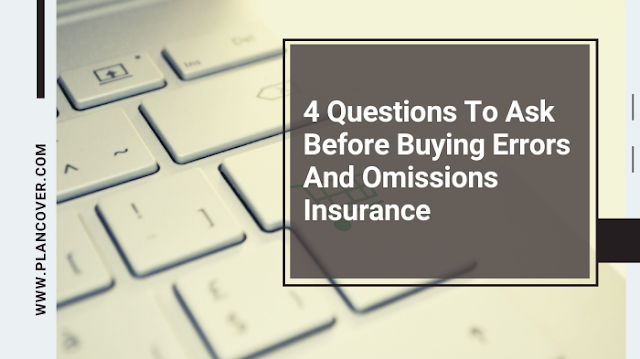If your client doesn’t like your service or advice, they may choose to sue you. So, “whether I need errors and omissions liability insurance or not” is not the right question.
Everyone from marketer to an interior designer, web developer to accountants, and doctors to lawyers – they all should ideally have errors and omissions insurance coverage. If you offer professional services or advice, you should opt for the said policy as well.
So, it’s not the matter of whether you need it or not; that’s the wrong question.
Here are 4 right questions that you should ask instead before buying your errors and omissions liability insurance policy:
1. Which is the right insurance broker I can trust?
This isn’t particularly a DIY thing. There’s a lot you need to know and understand before you buy any insurance – and there’s only so much online articles and videos can tell you. You need the right experts by your side who can assist you in the decision-making, including with establishing your risks and finding a reputed insurance company. So, do your research and find a good (and licensed) insurance broker whom you can trust.
2. Is this coverage enough?
Buying errors and omissions liability insurance just for the namesake is a bad strategy. Sadly, that’s what many people do. They choose the cheapest plan to save money. Don’t be one of them! Make sure you’re buying an E&O insurance policy that provides adequate coverage. This requires you to first determine your risks and then decide.
3. What this insurance doesn’t cover?
Errors and omissions liability insurance covers several different things, right from work mistakes to undelivered services to accusations of negligence. But, at the same time, there are a few things that it doesn’t cover, like customer injuries, employee injuries, data breaches, and more. So, it’s important that you have a fair idea of all those things your insurance won’t cover.
4. What more insurance policies do I need?
Once you know what are the things E&O policy won’t cover, time to analyze whether you need coverage for those things or not. If you do, you should buy other types of business insurance as well that are relevant to your needs. Consulting a trusted insurance broker can help you with this; they can help you realize your needs in order to protect you and your business against all legal liabilities.
Conclusion
These are four questions you should ask before (and after) buying errors and omissions liability insurance. Remember, it’s not a matter of whether you need it or not – you very certainly do if you offer professional services and advice to clients or customers. The conversation comes to what kind of E&O policy you should buy.

Comments
Post a Comment